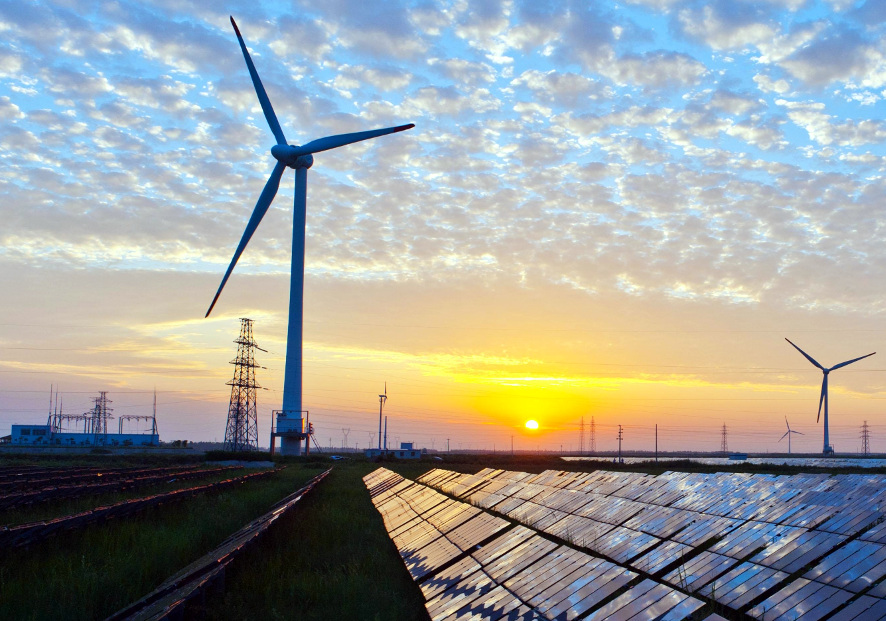With climate change now at the forefront of public agenda, developed countries around the world have pledged net-zero carbon emissions and promoted green deals. Notably exempt from these countries is the United States (US), who formally withdrew from the Paris Agreement under the Trump Administration. Following the latest election results, we dive into the question: What would the future of energy look like under a Biden administration?
From calling names and scrutinizing tax returns to scandals of collusion with foreign powers, there is no denying the hostility between the two candidates. Trump and Biden have put forth polar opposite energy policies, and have not gotten nearly as much attention it deserves.
Let’s start with Biden who has put climate change at the heart of his campaign. The seasoned democrat has vowed to invest two trillion US dollars into clean energy and rejoin the Paris Agreement, while simultaneously cracking down on oil-sector pollution and limiting new drilling on federal lands. Biden’s grand plan to “decarbonize” the US electricity sector by 2035 and achieve net-zero emissions by 2050 is admirable, but may be criticised as being too ambitious. The plan pledges the installation of tens of thousands of wind turbines, millions of solar panels, and a doubling of offshore wind by 2030. This is not impossible due to the plunge in costs of renewable energy, but would require active support from major energy players who are investing in renewables. However, giants such as Exxon Mobil, have shown little intent to abandon fossil fuels so far, in contrast to their European competitors such as BP and Equinor. On top of ending subsidies for oil producers and tightening regulations on fracking, it is no surprise that Biden is not a popular elect amongst oil producers.
There is one specific focus that Biden has spearheaded which might amend his relationship with the Oil & Gas sector: carbon, capture and storage (‘CCS’). CCS is an expensive system of sequestering CO2, either permanently or for use elsewhere. Biden has committed to research into CCS and said he would provide federal investments and enhanced tax incentives to accelerate deployment and development of CCS plants. The plants currently have the capacity to capture only 25m tonnes of CO2 a year — a fraction of the 1.6bn currently pumped out by the US power sector. A Biden victory would push the US into a future of cleaner energy.
During one of the presidential debates, President Trump described wind turbines as ‘graveyards for birds’, illustrating his stance on energy. Not only does the President support the use of fossil fuels, he has repeatedly championed the US Oil & Gas industry, pledging further deregulation and even opening up the Arctic National Wildlife Refuge for drilling. The Trump administrations’ support towards the Oil & Gas industry extends to its internal affairs. Besides withdrawing from the Paris Agreement, sanctions have been imposed on oil exporters from Venezuela to Iran to favor American oil. Trump has always been skeptical of clean energy, repeatedly claiming that it would result in severe job cuts in oil-producing states, and even a nation-wide economic disaster. He criticized Biden’s energy plan as ‘radical’ and claimed that a Biden presidency would kill the fracking industry.
However, under his presidency thus far, Trump has failed to uphold his 2016 campaign promise to reopen coal mines and bring back coal mining jobs. US Coal-fired power plants and mines have continued to close down during his presidency, although experts have suggested that this is more due to the expensive cost of coal, rather than government policies.
With the Covid-19 pandemic drastically reducing the demand for oil, this has resulted in job cuts and increased insolvency filings by independent producers in the oil sector. Trump’s rigorous support could potentially help retain the country’s status as a major oil producer.
Regardless of who wins, the political pressure for transitioning to clean energies and tackling climate change will only get stronger. From the Extinction Rebellion to Greta Thunberg’s viral speech at the 2019 UN Climate Action Summit, the global public outcry for fundamental change in carbon emissions is too powerful for even a superpower like the US, to resist.
3rd year Law student at KCL






0 Comments